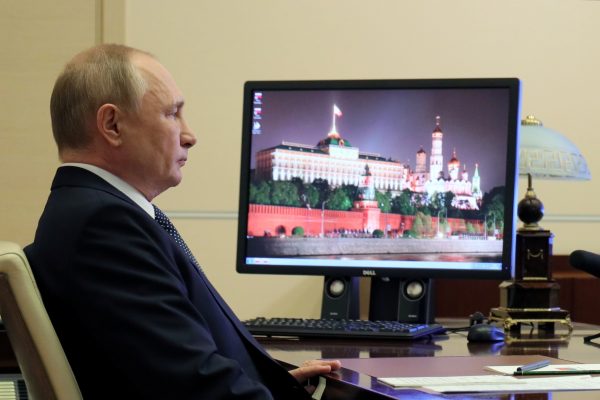Now the critical question is how to deal with Russia — as a member of the G20 — and its aggression against Ukraine. Many G20 members, particularly the G7 members, have strongly condemned Russia and supported serious economic sanctions. Other G20 members, particularly China and India, have abstained from condemning Russia in the various UN resolutions, showing divisions in the G20 membership.
Almost immediately after Russia’s invasion of Ukraine, Indonesian officials suggested that the Indonesian G20 would seek to avoid the issue. As its co-sherpa, Dian Triansyah Djani declared that Jakarta would remain focused on its priorities, including the global health system, a sustainable energy transition and the digital economy. Following NATO and G7 meetings in Brussels US President Joe Biden and Australian Prime Minister Scott Morrison have voiced support for removing Russia from the G20.
We have seen this before. The issue of Russian aggression was first vetted in 2014 due to its annexation of Crimea. At the time, the United States and other members of the G7/8 agreed to suspend Russia from the G8. Russia had participated at the leaders’ level beginning in 1998, though it was never invited to participate in the critical finance ministers and central bankers’ meetings. In the face of Russia’s aggression, the G7 leaders suspended the country, leading Moscow to walk away in 2017.
The G20 is a critical informal institution that includes the G7 and major emerging market and developing economies. Member countries now face the question of what to do about Russian President Vladimir Putin’s attendance at the Bali G20 summit — and possibly beyond. Australian Treasurer Josh Frydenberg has already indicated that Australia would support Russia’s ejection from the G20. Yet 2014 revealed that a number of members were not prepared to eject or even suspend Russia. At this moment, it seems that members such as India, Brazil, Turkey and host country Indonesia would not support Putin’s exclusion from the Bali summit.
If the G7 leaders are unable to secure support for exclusion, they are likely to shun Putin in Bali as they did at the Brisbane G20 summit in 2014. On the other hand, there is a strong possibility that Putin would choose not to attend notwithstanding current statements that he will.
A spokesperson for China’s foreign affairs ministry said that ‘the G20 is not an appropriate forum to discuss the Ukraine issue’. China has made overtures to both sides, giving humanitarian aid to Ukraine while still describing the relationship with Russia as ‘rock solid’, according to Chinese Foreign Minister Wang Yi at a news conference on 7 March.
The G20 is a critical forum for addressing global governance challenges. But the Biden administration has barely acknowledged the G20. With the administration’s attention on the Indo-Pacific and the divisive ‘Summit for Democracy’, little US administrative energy has been expended on the 2021 Italian summit or now on the Indonesian summit. Added to that is the US administration’s determination to carry out a policy of strategic competition with China, or what Biden referred to at his first news conference as ‘stiff competition’.
The Biden administration has to turn down the temperature between China and the United States. Otherwise, it plays to those — such as Putin — who are determined to fragment the global order. US–China rivalry can de-escalated and the G20 can provide the right platform to do so.
Key G20 actors together can intensify their involvement in every aspect of G20 processes throughout the Indonesia G20 year and advance further at the future Indian and South African G20 summits. The idea should be to use G20 official processes with Chinese colleagues to advance the global agenda and interact professionally — away from the media spotlight.
The G7, G7/8, and in particular the G20, have evolved over the years due to leaders’ changing concerns and priorities on global governance issues, such as international finance and climate change mitigation, not geopolitics. It is not a focus for geopolitical rivalries. The first G20 summit called by former US president George Bush in December 2008 was gathered together to deal with the global financial crisis. As one of its innovators, former Canadian prime minister Paul Martin has repeatedly said that the G20 is about ‘how to make globalisation work for all’.
The G20 hosts many more official gatherings than just the annual leaders’ gathering, including sherpa meetings, ministerial meetings, even including foreign policy meetings on occasion, working groups and task forces. This rich environment provides opportunities for G20 officials — especially US and Chinese officials — to advance global governance policies. G20 efforts need not just focus on the annual leaders’ summit. The frictions of Putin’s Summit presence, or not, can be left aside. If legitimate policymaking concerns replace the current tense US–China relations, the G20 could even establish the setting, away from the press, for critical geopolitical discussions.
Alan Alexandroff is the Director of the Global Summitry Project. He teaches at the Munk School of Global Affairs and Public Policy, University of Toronto.

